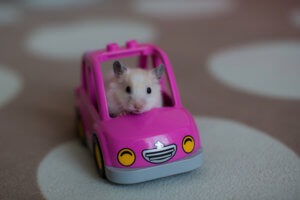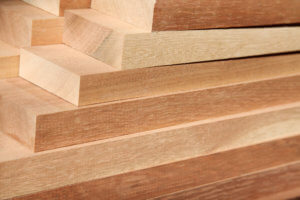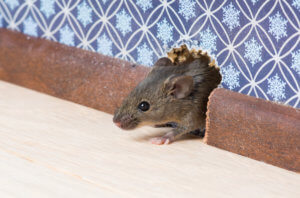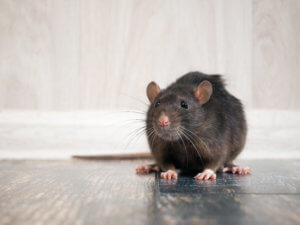Nothing can be more frustrating than finally squaring away some time to take the RV out and then discovering that rats have been partying in it the entire time. Of all motor vehicles, RV’s could be most at risk of a rodent intrusion.
The reason for this is three-fold:
- RVs tend to sit in one place for extended periods of time, typically during the winter time. This provides plenty of time for rodents to explore the vehicle and mark it as “safe”. Once marked as safe, it can offer a perfect nesting grounds.
- RVs provide copious amounts of shelter. Not only do the rodents have the luxury of the engine compartment but the entire cabin space as well.
- RVs typically are stocked with some food. Usually most food is emptied out when the trip is over but it is common to leave a few longer lasting things behind. This would certainly be a mistake.
Now, when putting together an action plan for protecting an RV against rodents, there are a few initial variables that need to be considered.
First of all, where is the RV being stored? Do you have daily access to it or is it inaccessible?
RVs Stored Onsite
If you have daily access to the RV then you are able to keep an eye things the same way as you would a normal car parked in your driveway. Thus, the prevention methodology is going to be the same as a normal car with a few differences*.
*For optimum rat trap placement on RVs, place in the proper formations for all 4 tires instead of just the front 2 tires. When conducting the 5 minute check, you will also need to scan the inside of the RV, including inside the drawers and cabinets.
For your onsite RV, follow the proper link below depending on the type of Rodent you are dealing with:
- Norway Rats (aka Brown Rats) – See article Step-By-Step: How to Keep Rats Out Of Your Car or See the Home page for more information
- Roof Rats (aka Black Rats) – See article Step-By-Step: How to Keep Rats Out Of Your Car or See the Home page for more information
- Mice – See article How to Prevent Mice From Eating Your Car Wires
- Squirrels – See article How to Prevent Squirrels From Eating Your Car Wires
- Pack Rats – See article How to Prevent Pack Rats From Eating Your Car Wires
- Rabbits – See article How to Prevent Rabbits From Eating Your Car Wires
RVs Stored Offsite: Storage Facility
If your RV is stored is offsite, then the prevention methodology is going to be a bit trickier. For RVs in a long-term storage facility be sure to ask the storage company what they do for rodent control. I would be a bit concerned if they said they don’t do anything. I would expect that they at least pay monthly for a professional exterminator for the property.
I would also ask if you are covered by their insurance if rodents or wildlife damage your RV while it is being stored. Separately, if you still owe a decent amount of money on your RV then you probably have Comprehensive Coverage on your RV insurance*
*if you don’t have comprensive coverage on your RV insurance, I would HIGHLY suggest that you get it. RVs are so prone to Rodent Damage that is certainly a must have. See article Will My Car Insurance Cover Rodent Damage?
RV’s Stored Offsite: Remote Property
If your RV is stored offsite for long periods of time in an outdoor location, then there a few solutions you could implement.
Note: Remember that your success rate will be much higher if you use a combination of methods that hit upon multiple senses of the rodent (i.e. sight, sound, smell, etc.)
Owl Box – if you own the offsite property (or have influence over that property) that the RV is stored on then this would be a fantastic solution. See article Why Get An Owl Box.
Solar Powered Lights – There are solar powered rope lights that you can purchase to wrap around the base of the tires at night. This will deter rodents from going near the tires because they like to stay concealed.
Ultrasonic Repeller – If your RV has power where it is stored or if you can tap into a power source, you can plug in an Ultrasonic Repeller in or around the RV. Alternatively there is a Solar Powered Outdoor Ultrasonic Repeller that can be used.
Snap Traps – Even if you get a kill and won’t be able to replace the traps often it still doesn’t hurt to take down that initial wave of attacks. You can still place these in the formation shown here in the video, though I would place them on all 4 tires. If you have 4 tires on the rear axle, then place 3 traps on each tire in the formation.
Fake Owl – it certainly doesn’t hurt to have a scarecrow up. These are most effective though if you can move them every few days.
Block Holes – Xcluder is a stainless steel mesh that you can use to block holes. Rodent teeth cannot chew through stainless steel so this is why you want to use a stainless steel product. This solution is more to keep the rodents out of the cabin area and it is common that the holes for the plumbing in the bathroom and kitchen might have been made too big. Use Xcluder to plug in the gaps. Also check the outdoor power cord to see if there is a hole there on the side of the RV that you can plug up.
Professional Exterminator: This is always going to be an option for a remote storage location. The exterminator will regularly visit the site to refill the poison bait boxes so this could be a completely hands off solution.
I hope that this information has been helpful!
If you have any questions/comments, please drop a note below!
Thank you!!
-Rat King Dave
This page contains Amazon Affiliate links. I will receive a commission for any purchases made through these links, though at no additional cost to you.






I caught mice with two gadgets. One was a simple two inch diameter cardboard tube a foot long with one end sealed with scotch tape. I chased the mouse into a corner with the tube lying where the wall met the floor and the mouse ran into the tube. I upended the tube with the sealed end down to capture the mouse and carried the tube thus upended outside and released the mous into the bushes outside the house.In the suburbs a wild mouse in the bushes bothers no one.
Wow! Nice work!! Thanks for sharing! RKD